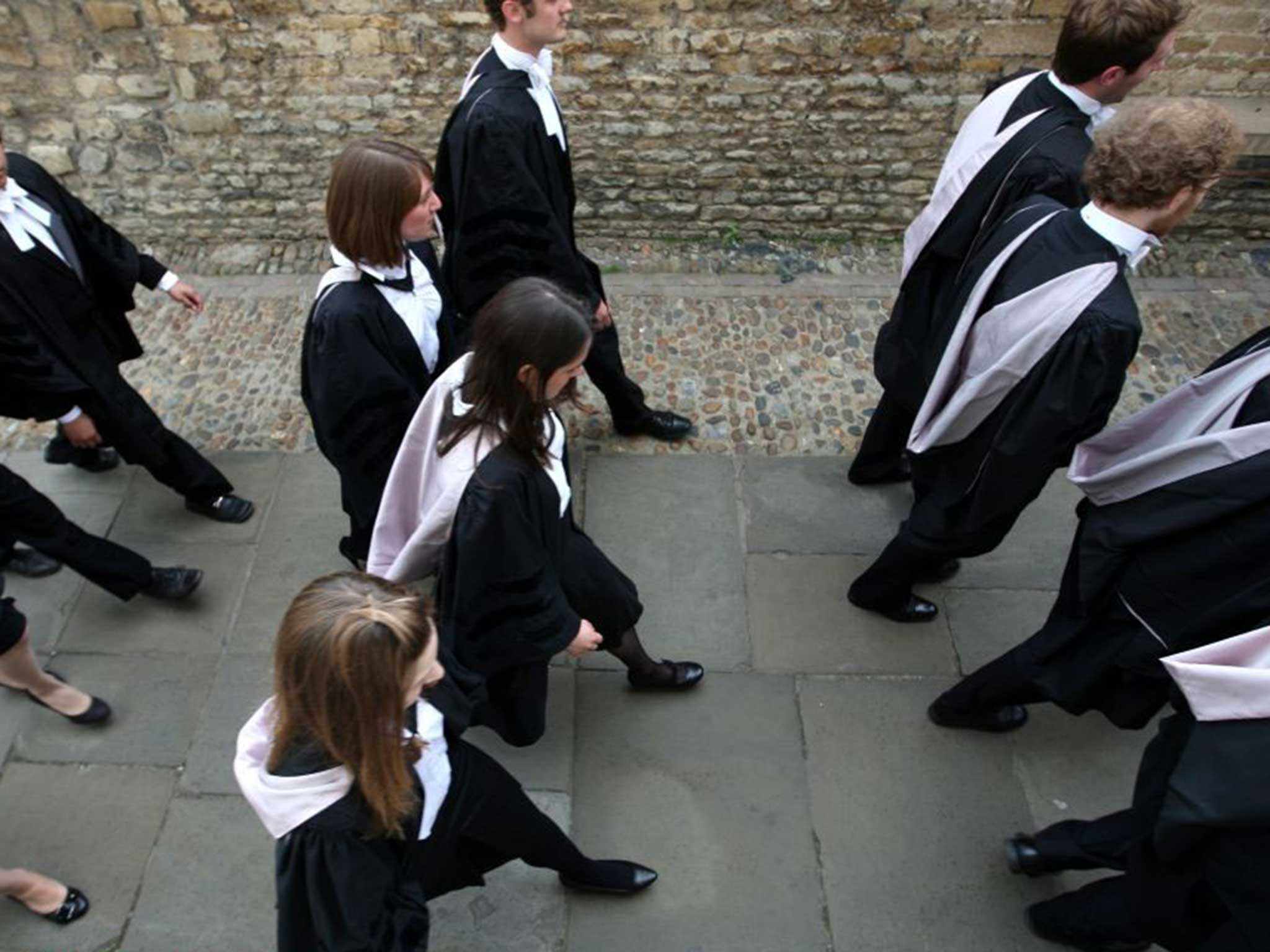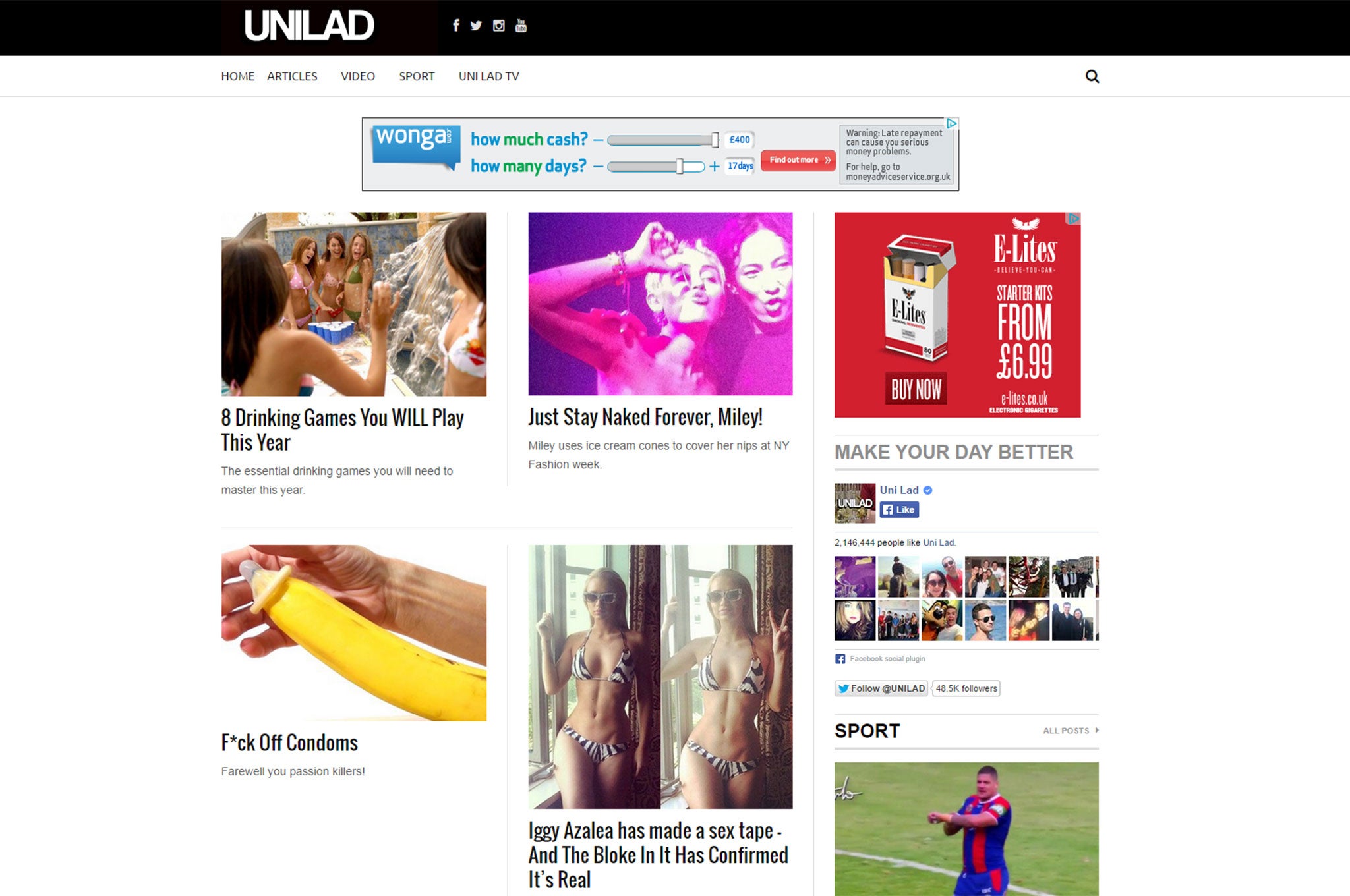Sexism at university: A third of women students experience unwelcome sexual advances
The President of the NUS has suggested a 'cross-institutional strategy' with UK universities to target sexism on campus

Your support helps us to tell the story
From reproductive rights to climate change to Big Tech, The Independent is on the ground when the story is developing. Whether it's investigating the financials of Elon Musk's pro-Trump PAC or producing our latest documentary, 'The A Word', which shines a light on the American women fighting for reproductive rights, we know how important it is to parse out the facts from the messaging.
At such a critical moment in US history, we need reporters on the ground. Your donation allows us to keep sending journalists to speak to both sides of the story.
The Independent is trusted by Americans across the entire political spectrum. And unlike many other quality news outlets, we choose not to lock Americans out of our reporting and analysis with paywalls. We believe quality journalism should be available to everyone, paid for by those who can afford it.
Your support makes all the difference.An NUS survey has revealed that one in four UK students have experienced unwelcome sexual advances, leading to a call by NUS President Toni Pearce for universities to tackle ‘lad culture’ on UK campuses.
In the survey of 2,156 men and women students, almost one third of respondents said that they endure unwanted sexual comments about their body. Two thirds said they have seen students put up with unwanted sexual comments, while more than a third of women students (37 per cent) said they had faced unwelcome sexual advances.
“These stats show that harassment is rife on campus, but we still we keep hearing from universities that there is no fear, no intimidation, no problem - well this new research says otherwise,” NUS President Toni Pearce said.
With online communities such as ‘Unilad’ and ‘Lad Bible’ consistently accused of normalising misogyny and rape culture, Ms Pearce suggested that what is needed is a “cross-institutional strategy” between the NUS and UK universities to target sexism.

60 per cent of students who answered the NUS survey said they were not aware of any codes of conduct implemented by their university or students’ unions that prohibit or tackle sexual conversations, sexual comments, unwelcomed sexual advances, group intimidation and verbal harassment.
Laura Bates of the Everyday Sexism project is working as the Lad Culture National Strategy Team Ambassador. She said that although many students would not label it as such, a “lack of awareness” over what constitutes sexual assault is “a major part of the problem”.
“Students are experiencing sexism, sexual harassment and assault within the university environment. It is worth mentioning that one category of such experiences, ‘inappropriate touching and groping’ actually constitutes sexual assault under UK law,” she said.
Join our commenting forum
Join thought-provoking conversations, follow other Independent readers and see their replies
Comments